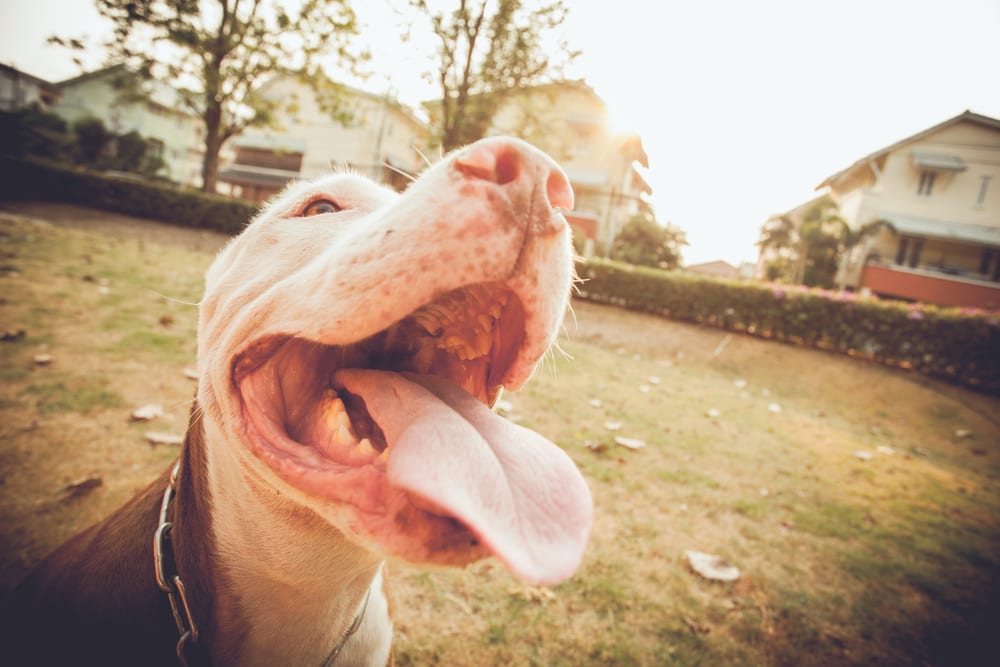Pit Bulls are one of the most contested dog breeds out there. In many cities in the United States and Texas, Pit Bulls are not allowed within city limits. Many owners, however, don’t understand how their sweet and loving dogs could be so misunderstood. At Pawderosa Ranch, we believe every well-socialized dog can be a happy and healthy one, regardless of their breed. So why do so many Pit Bull myths still persist? Check out below as we unpack some of these myths, and reveal the facts behind them.
-
-
Pit Bulls are one single, easily identifiable breed of dog.
The name “Pit Bull” actually denotes several different dogs in the bully breed, including the American Pit Bull Terrier, the American Staffordshire Terrier, the Staffordshire Bull Terrier and the Bull Terrier. Most myths about Pit Bulls are only in reference to the American Staffordshire or Pit Bull terrier, ignoring the diversity of the breed.
-
Pit Bulls have a “locking jaw” that lets them bite down hard and not let go. They exert more force with their bite than any other dog.
Collies, Beagles and Golden Retrievers all exert more force with their bite than the American Pit Bull Terrier. There is no such phenomenon as a “locking jaw” in any breed of dog.
-
Pit Bulls are especially mean-tempered and are often too aggressive to be around people or other pets.
The American Temperament Society, which conducts an annual test on the temperament of different dog breeds, actually ranks Pit Bulls above average in their interactions with people. The passing rate of dogs overall is 81.6%, while Pit Bulls come in at 84.3%.
-
Pit Bulls are responsible for more fatal attacks than any other dog breed.
A person is 200 times more likely to die from taking an aspirin than from a Pit Bull attack. Because Pit Bull’s are a breed with so much variety in appearance, many dog attacks are incorrectly attributed to Pit Bulls, due to public perception of the breed as aggressive.
-
Breed-specific legislation results in fewer dog attacks.
The CDC strongly opposes breed-specific legislation, citing major errors in studies that suggest the effectiveness of these laws. More often than not, breed-specific legislation results in the removal of happy, well-socialized dogs from their loving families. This fills already overcrowded shelters in surrounding areas and increasing the euthanasia rate of healthy animals.
-
Pit Bulls are known to “turn” suddenly on their owners, due to sudden brain swelling or an unstable temperament.
See above for a discussion of the Pit Bull temperament. The “brain swelling” myth was originally attributed to Dobermans back in the 1970s. It has since migrated to the Pit Bull breed, but no scientific evidence substantiates this fact. As far as the sudden “turning” of a dog on their owner, this excuse may be given to avoid charges of animal cruelty when someone provokes or abuses their dog.
-
Pit Bulls were bred to fight, which resulted in an aggressive breed.
Pit Bulls were actually bred for their loyalty. For the first seven decades of the 20th century, they were admired for their commitment to their owners and their gentle personalities. They even earned the nickname “nanny dog” for their friendliness around children. Unfortunately, loyalty is what led to their exploitation as dogfighters in the 1980s – they were willing to follow their owner’s commands even when it meant attacking other dogs and risking injury or death. Neglect and abuse resulted in aggressive behavior, not genetic makeup.

At Pawderosa Ranch, we love your dog no matter the breed, purebred or mutt. We pride ourselves on offering canine enrichment to all well-behaved dogs, making them better socialized and happier pets. Contact us today and see what offerings we have for your best friend!Book your dog’s stay today.
-







